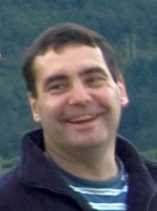As a child I was facinated by motors, magnets and electricity. As a teenager my interest in electronics grew and I worked my way through every practical book and magazine that I could find on the subject. Along the way I was lucky enough to be introduced to the world of military radio though the school's Combined Cadet Force(CCF) and the CCF National Radio Net. This activity probably seemed rather geeky to my friends at the time but provided a focus for advancing my electronics skills maintaining the vintage military radio, building home-brew transmitters and opportunities to socialise over the air with other like-minded people. It also introduced me to morse(CW), gave me a valuable insight into the characteristics and challenges of radio communication that stood me in good stead later in my career. At around the same time personal computers such as the Commodore PET apeared on the scene and I quickly expanded my set of interests to include programming the 6502 microprocessor. I recall that one of the last things I did before leaving school was to write a morse code tutor using a combination of PET Basic and 6502 machine code and an audio amplifier attached to the Cassette Port.
In my gap year between school and university I resolved to take my hobby further and become a Radio Amateur. I took the Radio Amateur Exam in 1981 and received my callsign G6KME - at that time was a Class 'B' licence. Shortly thereafter I embarked on a Electrical and Electronic Engineering Degree at what was then Portsmouth Polytechnic and whilst Amateur Radio always remained a latent interest, I was not really interested in VHF, I didn't have the time to study for the morse test and I quickly found other time-consuming student interests such as sub-aqua, waterskiiing and learning about computer programming.
Friday, 20 February 1981
Subscribe to:
Post Comments (Atom)

No comments:
Post a Comment